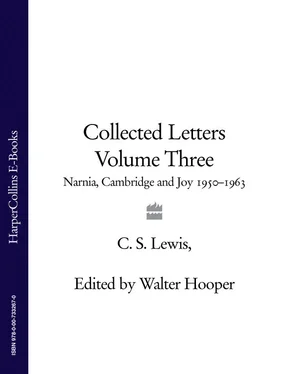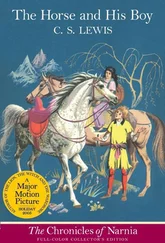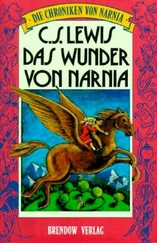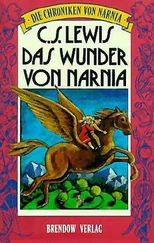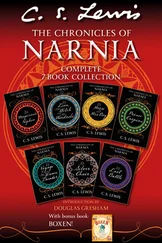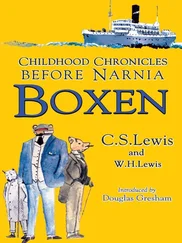My selections will be all from Faerie Queene and Epíthalamíon: 98 there’s no room for anything else. The bits from EQ. will be often arranged so as to yield something like continuous narrative: as soon as I looked into the matter I saw that a mere conglomeration of the best single stanzas wd. give no idea of his quality and wd., indeed, be almost unreadable. I hope this meets with your approval.
Yours sincerely,
C. S. Lewis
TO JOAN PILE (W):
Magdalen College,
Oxford
May 21st 1952
Dear Mrs. Pile
What a horrible business! Of course neither I nor anyone who knows you could believe the allegations for a moment. I don’t think I cd. do much good by writing to Ld. Nuffield, though I am prepared to try it if nothing better can be done. Have you tried your M.P. I mean, not about the expenses of the case but about the injustice of being forced to answer questions on oath and then accused of slander for answering them? In the meantime I am writing to a legal friend of my own for advice. I can’t tell you how sorry I am for you in this trouble. I will write again as soon as I have anything to report.
Yours sincerely
C. S. Lewis
TO VERA GEBBERT (W):
Magdalen etc.
May 23rd 1952
Dear Vera Gebbert
Well, well, what next? Very hearty congratulations. 99 Everything in the photos is lovely except the goggles: and they, I suppose, are a Necessary Evil, like civilisation, government, medicine, education, law, and nearly everything else. You’ll have to watch those very depraved antelopes. If they are already addicted to gum and tobacco, they will soon develop a taste for cocktails. (Our college herd of deer used to be v. fond of bread soaked in port–in the days when wine was cheaper. They don’t get the chance now). I shall think, in all the extenuating circumstances, you might be excused for ‘neglecting your writing’. I don’t know that I’d really like to marry a girl who wrote fiction all the time on the honeymoon. (Of course if 7 did, that wd. be quite different and it wd. be most unreasonable of her to object.)
Nor can I quite believe that an avid expectation of my next book makes a very large part of your present experience. Anyway, it won’t be fulfilled. I’m busy at present finishing the heavy, academic work on 16th. Century literature wh. has occupied me (it has been the top tune—all the other books were only its little twiddly bits) for the last 15 years. When it is actually done I expect my whole moral character will collapse. I shall go up like a balloon that has chucked out the last sandbag.
My brother is away for a few days but wd. certainly join in all my felicitations if he were here. I hope you will both live happily ever afterwards and tell stories to your great-grandchildren, travelling in donkey carriages along the mountain roads with hair as white as the snows. God bless you both.
Yours ever
C. S. Lewis
TO DOM BEDE GRIFFITHS OSB (W): 100
[Magdalen College]
28/5/52
My dear Dom Bede–
It isn’t chiefly men I am kept in touch with by my huge mail: it is women . The female, happy or unhappy, agreeing or disagreeing, is by nature a much more epistolary animal than the male.
Yes, Pascal does directly contradict several passages in Scripture and must be wrong. What I ought to have said was that the Cosmological argument is, for some people at some times, ineffective. It always has been for me. (By the way do read K. Z. Lorenz King Solomons Ring on animal—especially bird—behaviour. 101 There are instincts I had never dreamed of: big with a promise of real morality. The wolf is a v. different creature from what we imagine.)
The stories you tell about two perverts belong to a terribly familiar pattern: the man of good will, saddled with an abnormal desire wh. he never chose, fighting hard and time after time defeated. But I question whether in such a life the successful operation of Grace is so tiny as we think. Is not this continued avoidance either of presumption or despair, this ever renewed struggle, itself a great triumph of Grace? Perhaps more so than (to human eyes) equable virtue of some who are psychologically sound.
I am glad you think J. Austen a sound moralist. I agree. And not platitudinous, but subtle as well as firm.
I’ll write to Skinner. Merlin was excellent. I haven’t written yet because someone has had my copy, till a day or two ago, almost ever since my first reading.
Yours
C. S. Lewis
P. S. Is the Elgin address going to be permanent?
TO SHELDON VANAUKEN (BOD): TS
[June? 1952] 102
Thank you for a letter which I prize very much. The sonnets, though in a manner which will win few hearers at the moment (drat all fashions) are really very remarkable. 103 The test is that I found myself at once forgetting all the personal biographical interest and reading them as poetry.
The image of sand is real imagination. I thought this was the better of the two at first: but now I don’t know. The second quatrain of The Gap is tip-top argument—and then the ground sinking behind. 104 Excellent.
Yours
C. S. Lewis
TO KATHARINE FARRER(BOD): 105
As from Magdalen
June 10th 1952
Dear Mrs. Farrer–
I brought home both The Missing Link 106 and Merlin 107 yesterday evening, intending to regale myself on light fiction for a bit before tackling poetry. But—well, you foresee what I am leading up to with elephantine delicacy. It happens, however, to be true. I never reached Merlin and sat up later than I intended to finish the M.L.
I thought it very well constructed, and it thoroughly excited me. That, of course, is not of much value because I’m such an inexperienced reader of Whodunnits. But there were a great many sources of pleasure besides the mystery. You do the atmosphere of the Wychwood country and of Liverpool docks (both of which I know) very well—though, by the way, on p. 141 ‘the familiar devil of the stairs’ completely defeated me. Is the text corrupt? 108 The description of Syd on pp. 24-25 is an excellent bit of writing. The Spanish captain is good. And, of course, there’s wit everywhere, and often with weight of thought behind the sting–‘Notice how he uses down (p. 50), and the bit about families >< 109 family allowances and houses >< housing bit on p. 127. Richard’s (delightfully preluded) remarks at the bottom of p. 104 and the top of 105 needed making. (Mrs. Luke, by the way, convinces me completely).
About your dialogue I’m not so happy. Mrs. Harman talks well. But if I were a spiteful reviewer I’d say that the advice ‘Don’t talk like a C.W. character’ 110 ought to have been given to Richard (and obeyed!) earlier. Not that C.W. isn’t a v. great man but one must not imitate the droop of Alexander’s shoulders. Richard is talking like a C.W. character at his worst on the top of p. 85. He (Richard, not C.W.) would have better manners than to quote poetry to Plummer who wd. certainly think he was being somehow made a fool of and be hurt.
I think dialogue is frightfully tricky: partly because it is so hard to stop writing it (characters will talk: at least so I find) and partly because so much that wd. be alright in real conversation looks different when it gets into print. Andrew’s clipped G’s for instance. It’s a v. small thing in real life: but ‘in” in print usually suggests huntin at once and all the odious literature written by people who admire those who say huntin and the yet more odious literature by those who dislike them. I dare say we’d be wise to re-read all our dialogue as it might be read by a dull, or vulgar, or hostile reader. And of course it’s the light dialogue (banter between lovers, small talk at a party) that is dangerous. But I don’t know what right I have to talk like this, especially without being asked!
Читать дальше
